Mouse Control Services
The most common species of mice Croach® handles for our customers include American white-footed mice, deer mice, and house mice. We also commonly exterminate roof rats, Norway rats, and woodrats.
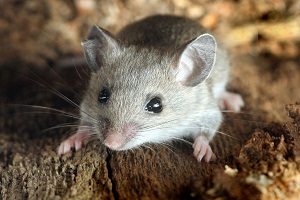
(PEROMYSCUS MANICULATUS)
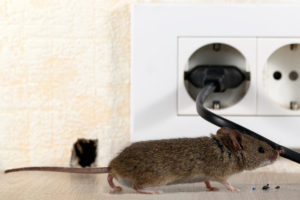
(Mus Musculus)
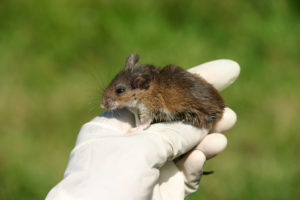
(Peromyscus Leucopus)
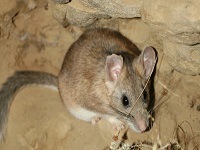
(Neotoma Cinerea)
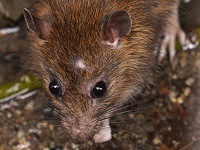
(AKA SEWER RAT OR WHARF RAT)
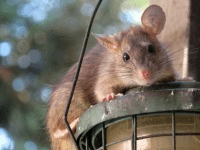
(aka Black Rat)
How and Why a Mouse Chooses Your Home
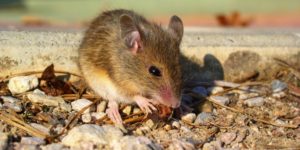 Mice and rats enter homes looking for food, water, and shelter, especially when the weather grows inclement.
Mice and rats enter homes looking for food, water, and shelter, especially when the weather grows inclement.
They have incredibly flexible bodies. A mouse can enter through a quarter-inch hole. Rats can squeeze through a half-inch opening.
Your Croach® technician will thoroughly inspect your home and offer a mouse control treatment plan tailored to your needs.
There’s More than One Mouse in Your House
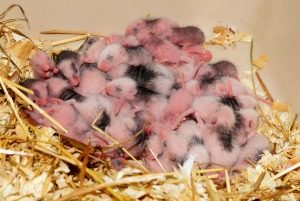 Mice breed rapidly. A mouse can give birth to nearly sixty babies a year called pups; a rat gives birth to closer to eighty-five young a year.
Mice breed rapidly. A mouse can give birth to nearly sixty babies a year called pups; a rat gives birth to closer to eighty-five young a year.
Even worse, the pups themselves begin breeding two months after they are born. They propagate year-round!
In addition to transmitting disease, mice eat your food, damage your home, and destroy paper products and insulation. They chew on wires and nest in electronics, increasing fire hazards as well as cooling and heating costs.
Rats and Mice Spread Serious Illness and Disease
Mice and rats spread diseases through breathable dust particles from their skin or feces, urine and saliva, biting and scratching, contact with a rodent corpse, and contact with its trails or the food it has been eating. These diseases run from debilitating to life-threatening.
Best known for the Hantavirus and the Black Plague, some of the other illnesses that make mouse control so important include Leptospirosis, Rat-Bite Fever, and Salmonellosis.
Related: The Dangerous Deer Mouse
For more information about mouse control or to schedule a free inspection, contact Croach® today.
Request a Free EstimateSigns You Need Mouse Control Services
- Chew and scratch marks on wires and cables, wood, plastic, paper and cardboard, pipes, and carpeting.
- Unexplained holes, or burrow openings. While they tend to use existing holes, they will expand them or create their own.
- Mouse or rat droppings, varying in size. The crescent-shaped pellets can have pointed or rounded ends depending on the species.
- Nests in small, hidden places like boxes or wall voids, made from paper, cardboard, insulation, or other fibrous matter.
- Disturbed food or food trails, often of dry goods or sweets. You can see signs of them eating and where they went afterward – mostly mice.
- Trails – rats will stick to the same path when possible. Look for compressed pathways in grass and plants.
- Long smears or random stains. The oils on their fur leave marks where they touch or move along walls and floors.
- Unusual, strong odors. Mice and rats use urine to mark trails to make up for poor eyesight. A musky ammonia odor is a strong clue to a hidden infestation.
- Scratching or scurrying sounds behind the walls, especially at night.
- Live mice or rats, because they prefer to stay hidden. If you see them roaming, it is an indication of an advanced infestation.
Related: Rat Control | Rat Removal | Rat Extermination
The Croach® Approach to Mouse Control
- Traps: They are set out of the way so they will not disturb your life. We place the right size traps in the right areas to get rid of mice and rats in the home.
- Bait Stations: We use a high-grade bait that attracts rodents. After ingesting, rodents will look for water, usually off of your property. Our bait is a certified one-time kill. It will not cause harm to any animal ingesting the mouse or rat.
- Exclusion: We will help identify entry points and recommend solutions. The best rodent control is to keep them outside where the bait is.
We reset traps and remove carcasses during regular treatments.
Prevention and Aftercare
There are some simple steps you can take to prevent or limit mouse and rat infestations. Once treatment begins, follow these steps to help control future outbreaks:
- Seal food in lidded glass, metal, or heavy plastic containers (including pet food).
- Remove extraneous debris and vegetable matter from your property.
- Keep your home as clean as possible.
- Keep cardboard storage off the ground and away from walls, preferably switch to metal or heavy plastic containers with lids.
- Repair insulation and seal entry points.
- Don’t feed birds during treatment and after use feed with no husks.
- Regular rodent control. Prevention is always best.
- Refer your neighbors for mouse control to avoid mice hiding out next door – only to later return, a prevalent problem in neighborhoods.
More Information:
Deer Mice Control
Rodent Control Services
Rodent Prevention Checklist
Mouse Control Service Locations Include:
Portland
Seattle
For more information about mouse control or to schedule a free inspection, contact Croach® today.
Request a Free Estimate
